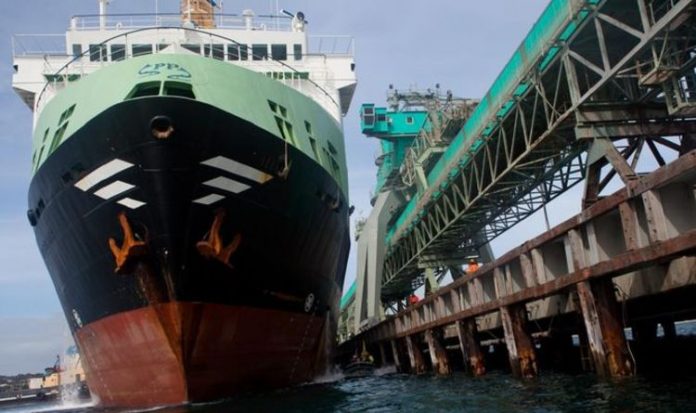Jeremy Percy, director of the New Under Tens Fishing Association (NUTFA) was speaking after a study by Greenpeace revealed the massive vessels – none of which is UK-owned – have already doubled the amount of time they have spent fishing in specially designated Marine Protection Areas (MPAs) in 2020 compared with last year. Greenpeace is calling for the Government to crack down on ships which operate in MPAs at the end of the transition period – but Mr Percy is concerned supertrawlers are increasing the time they spend in UK waters as part of a long-term strategy.
Mr Percy, whose organisation represents boats which are under ten metres in length, said he had become curious after seeing supertrawlers in action recently.
He added: “When we observed the vessels fishing off the Sussex coast, they didn’t seem to be catching much.
“I explained this to a good friend of mine who is an expert in this sort of fishing and he didn’t think they would be making any money there so the idea that they were continuing to build up a track record to strengthen their arguments post Brexit seemed sensible.”
Mr Percy admitted his theory was an assumption, but said it made sense given the catch landed by the supertrawler he had observed was “clearly not sufficient to make any profit for a vessel of this size”.
On the wider issue, Mr Percy said it was vital for Marine Management Organisation (MMO) which licenses, regulates and plans marine activities in the seas around England to get to grips with the situation.
He added: “These vessels have tremendous fishing power and we are told constantly by the Marine Management Organisation that they operate a risk based enforcement strategy so they should be focusing their efforts on these super trawlers rather than the small scale inshore fleet.
READ MORE: Fishing fury: 23 supertrawlers owned by EU states break ban
“Not even the EU can force them – a fundamental nonsense, as in the case of the Margiris (142 metres long, 10,000 horsepower main engine) she is registered in Lithuania and expecting that state to insist on cameras is a fool’s errand.”
Greenpeace’s analysis indicates in the first six months of this year, 23 supertrawlers had spent 5590 hours fishing in 19 protected areas – including many from Russia.
Chris Thorne, an Oceans Campaigner at Greenpeace UK, said: “Our Government cannot continue to allow supertrawlers to fish with ever increasing intensity in parts of our waters that are supposed to be protected.
“It must step in and put a stop to industrial supertrawler operations within our offshore marine protected areas, something which will be possible after Britain leaves the Common Fisheries Policy.
“Industrial fishing operations have no place in our protected areas.”
“At least 30 percent of the UK’s waters should be off limits to all industrial fishing activity in a network of fully or highly protected marine areas.”
Express.co.uk has contacted Defra, under which the MMO operates, to ask about restrictions on supertrawlers after the end of the year.
A Defra spokesman told Express.co.uk: “The UK is a global leader in the fight to protect our seas with our ‘Blue Belt’ of protected waters nearly twice the size of England.
“The Common Fisheries Policy currently restricts our ability to implement tougher protection, but leaving the EU and taking back control of our waters as an independent coastal state means we can introduce stronger measures.”







